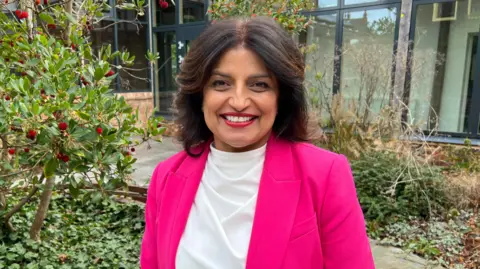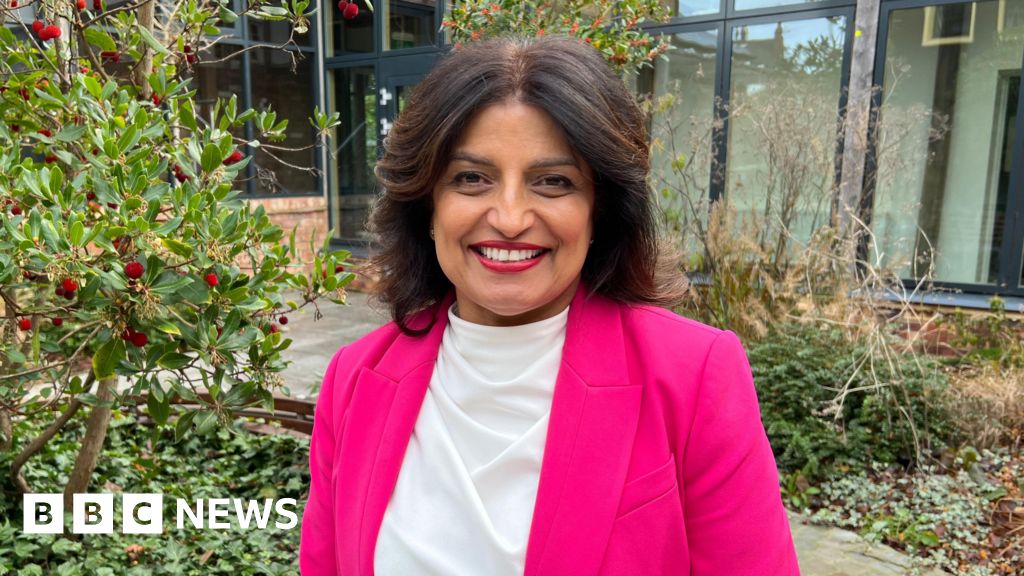Simon GilbertPolitical Reporter, Coventry and Warwickshire
 BBC
BBCCharging electric vehicle owners tax per mile could “cause friction” in the drive to phase out diesel and petrol cars, according to the boss of an electric car leasing firm.
It was confirmed in Wednesday’s Budget that electric car drivers will pay a road charge of 3p per mile from April 2028, while plug-in hybrid drivers will pay 1.5p per mile, with the rates going up each year with inflation.
The government plans to phase out sales of new petrol and diesel cars by 2030 in an effort to reduce vehicles’ effect on climate change.
Charnjit Saranna, who founded electric car leasing firm EZOO, based in Coventry, said she feared the Chancellor’s new tax could make EVs seem less appealing.
Speaking after watching the Budget at a Coventry and Warwickshire Chamber of Commerce event, she said: “It’s a shame because I think everybody’s working really hard towards the 2030 deadline.
“I think you begin to see some traction towards people switching from petrol and diesel to electric. I hope this isn’t going to hinder it.”
 Coventry and Warwickshire Chamber of Commerce
Coventry and Warwickshire Chamber of CommerceThe government’s independent forecaster, the Office for Budget Responsibility (OBR), itself said the new charge was “likely to reduce demand for electric cars as it increases their lifetime cost”.
Under the new measures, an electric car driver clocking up 8,500 miles in the 2028-29 financial year is expected to pay about £255 – about half the cost per mile that petrol and diesel drivers pay in fuel tax.
However, Ms Saranna said she was optimistic electric vehicles would still offer better value for money.
She said: “It shouldn’t deter people from driving an electric car because ultimately overall it is cheaper than driving petrol or diesel.”

